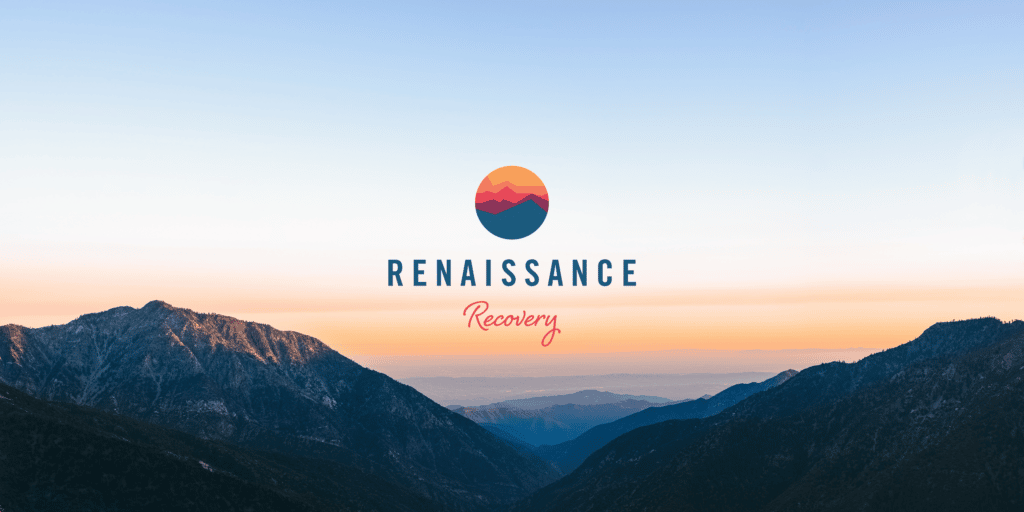Learning how to manage triggers for addiction can increase your chances of staying sober without relapsing.
Addiction is a chronic brain disorder with relapse rates of 40% to 60% in line with most other chronic health conditions. By identifying your personal triggers for substance use and learning how to handle triggers more effectively, you can improve your chances of long-term sober living.
Need help getting addiction treatment?
Triggers can also inflame the symptoms of anxiety, depression, and other mental health disorders. According to NAMI (National Alliance on Mental Illness), one in five adults in the U.S. experience mental illness in any given year, with one in twenty reporting an SMI (serious mental illness).
Today’s guide will show you how to overcome triggers for any unhealthy and self-defeating behaviors.
What are Triggers?
In the context of addiction, a trigger is anything your brain associates with the euphoric high delivered by substance use.
When it comes to mental health disorders, triggers can inflame the symptoms and will vary from disorder to disorder – more on this below.
Drug addiction triggers can be physical – the discomfort you experience during detox and withdrawal, for instance. Other addiction triggers are psychological, often occurring due to anxiety, depression, or stress co-occurring with substance abuse.
All triggers for substance use invoke the same neurological response whatever the source of the trigger. The response occurs because of the way addiction causes structural and functional brain changes, leading you to associate drug use with positive feelings and happiness.
Triggers can present at any stage of addiction recovery. In some cases, the resultant cravings are fleeting, but sometimes cravings persist for days or weeks.
It is inadvisable to leave cravings unaddressed during recovery. Oftentimes, cravings will become more intense when left unchecked, eventually becoming practically impossible to resist.
The more confidently you can identify what triggers you to use addictive substances, the more prepared you can be when confronted by cravings. As you start to use healthier coping strategies in place of substance use, you can create a new and healthier approach to dealing with life’s everyday stressors.
The most common drug addiction triggers are as follows:
- Drug and alcohol withdrawal symptoms: The early stages of drug and alcohol detox are characterized by insomnia, nausea, vomiting, fatigue, and exhaustion, as well as intense cravings for substances. To give yourself the strongest chance of negotiating these cravings, consider a supervised medical detox. FDA-approved medications can reduce the severity of cravings. You can also rely upon continuous emotional and clinical care to streamline detoxification.
- PAWS (post-acute withdrawal syndrome): For some people withdrawing from alcohol or drugs, PAWS can present for up to 18 months after withdrawal and detox. This protracted secondary phase of withdrawal often triggers powerful cravings for addictive substances.
- People, places, and things: Encountering people you associate with substance use is a commonplace trigger causing many in the challenging early phase of recovery to relapse. You might find that places that remind you of substance use fulfill the same function, triggering a desire to drink or use drugs.
- Prolonged social isolation: Spending too much time apart from others can often trigger cravings in those in recovery from addiction to alcohol, prescription medications, or illicit drugs.
- Poor self-care: Neglecting to focus on nutrition, exercise, and sleep quality can trigger cravings as you commit to ongoing recovery. Use your recovery as the ideal opportunity to implement healthy lifestyle changes. Prioritize your self-care and it will minimize the likelihood of relapse disrupting your recovery.
- Major life events: Trauma and tragedy can often trigger cravings in those struggling with addiction to drink or drugs. A therapist can show you how to manage trauma triggers without abusing substances. You can also discover how to control emotional triggers by engaging with an addiction treatment program.
- Problems in interpersonal relationships: If your closest relationships often cause you feelings of anxiety, depression, or stress, this emotional turbulence can snowball into cravings.

How to Manage Addiction Triggers
There is no universal strategy that is effective against all addiction triggers.
Whether you are thinking about committing to recovery or already underway with detox, withdrawal, or ongoing treatment, you should explore your personal triggers for substance use.
Be flexible in your approach to dealing with cravings, then. Always be ready to switch up strategies if they prove ineffective.
While all addictions are unique and everyone has different triggers, there are some simple steps you can take to manage triggers when they present.
- Focus on nutrition: Eat as many healthy whole foods as possible. Maximize your intake of fruits, veggies, protein-rich foods, and complex carbs. Minimize your consumption of unhealthy fats and processed foods. Drink small glasses of water throughout the day to stay hydrated. Paying attention to all these areas of nutrition will ensure you are in the best physical shape to cope with any cravings you encounter.
- Incorporate exercise into your daily routine: Aim to get at least thirty minutes of aerobic activity daily. Exercise promotes the release of endorphins and dopamine, chemicals linked with positive mood. You can exercise any time cravings manifest, even if you can only go for a walk or do some stretching exercises.
- Prioritize sleep health: As you negotiate detox and therapy for addiction, you should find your sleeping patterns start to normalize. Strive to get between seven and nine hours of sleep each night to keep cravings at bay during the day.
- Avoidance: If you feel unable to resist the lure of the people, places, or things that trigger you to use substances, try avoiding these in the early phase of recovery.
- Practice relaxation techniques: One of the best methods of dealing with addiction triggers is to cultivate practices of meditation, mindfulness, or deep breathing. All of these techniques can be effective on an ongoing basis, representing a healthy and positive response to any stressors in everyday life.
- Surround yourself with positive influences: Build a sober network of people who support your recovery and bring positivity into your life. While you do not need to sever all old friendships, you should think closely about spending time with anyone who exerts a negative or destructive influence over you.
- Stay busy: Active addiction often involves formless expanses of time where you get nothing much done. With substance abuse removed from the equation, some people find a lack of structure leads to boredom and subsequent cravings for substances. Create a busy schedule for yourself and maintain that schedule. Include time for self-care and exercise in addition to time for focusing on your ongoing recovery.
- Do more things you enjoy and practice gratitude: One of the symptoms of substance use disorder is spending less time doing things you once enjoyed as a result of drug or alcohol use. Take advantage of your recovery to rediscover old interests or to cultivate new hobbies. Rather than obsessing about what you don’t have and longing for what you are giving up, reframe your thinking about addiction. Rather than giving something up, you are instead removing a wholly negative element from your life. By practicing gratitude, you can shift your focus to the many things you have rather than those things you perceive that you don’t have.
- Journal your triggers: Write down your personal triggers and all possible coping strategies at your disposal so you have a point of reference if cravings present during detox or recovery.
How to Manage Mental Health Triggers
Two of the most common mental health disorders are anxiety disorder and major depressive disorder.
The most common symptoms of anxiety include:
- Uncontrollable worry
- Fear
- Irritability
- Edginess
- Insomnia
- Rapid heartbeat
- Muscle tension
- Problems with concentration and focus
- Restlessness
When those symptoms disrupt daily functioning and persist for six months or more, this is classified as GAD (generalized anxiety disorder).
The symptoms of panic disorder differ in presentation as follows:
- Trembling
- Shaking
- Sweating
- Accelerated heartbeat
- Palpitations
- Constricted throat
There are many coping techniques you can use to counter the symptoms of anxiety, regardless of what triggers the panic attacks or episodes of anxiety. Examples include:
- Reduce your caffeine intake.
- Do not consume addictive substances.
- Stick to a routine to reduce uncertainty.
- Aim to exercise for at least thirty minutes each day. You should exercise vigorously enough to raise your heart rate for best results.
- Take time out to address your worries instead of allowing anxiety to persist throughout the day.
- Make sure you get enough sleep.
- Practice deep breathing, yoga, meditation, mindfulness, or other healthy relaxation techniques.
- Accept some loss of control.
Depending on your personal circumstances, you may find avoiding anxiety triggers is effective, or you might prefer confronting certain anxiety triggers by attending therapy or anxiety peer support groups.
In most cases, professional treatment is the most effective way to equip yourself with the coping skills you need to deal with anxiety more robustly.
For those with major depressive disorder, becoming aware of what triggers depressive episodes can help you to cope more effectively.
Whenever life events trigger feelings of depression, stress, or overwhelm, consider using the following strategies to help learn how to manage triggers:
- Practice self-care.
- Use positive self-talk.
- Journal your feelings.
- Meditate.
- Exercise.
- Reach out for help.
In most cases, major depressive disorder will not dissipate without treatment, so consider engaging with therapy here at Renaissance .
Recovery at Renaissance
At Renaissance Recovery, we can help you learn how to manage triggers, and we offer a wide variety of gender-specific outpatient programs for the treatment of these conditions:
- Alcohol use disorder
- Substance use disorder
- Mental health disorders
- Dual diagnosis (addiction with co-occurring mental health disorder)
For those with mild addictions or mild mental health disorders, a traditional outpatient program may provide a suitable foundation for ongoing recovery. Those with more severe addictions and co-occurring mental health conditions may find a PHP (partial hospitalization program) or an IOP (intensive outpatient program) is more suitable.
Whatever level of treatment intensity your require, the treatment team at Renaissance will personalize your treatment plan, drawing for these evidence-based interventions:
- MAT (medication-assisted treatment)
- Group counseling
- Individual counseling
- Psychotherapy (CBT or DBT)
- Holistic therapy
- Family therapy
During counseling and psychotherapy sessions, your therapist will help you to identify your personal triggers for poor behaviors and they will show you how to use superior coping strategies to minimize your chances of relapse.
To benefit from personalized and comprehensive addiction or mental health treatment by calling us today at 866.330.9449.




